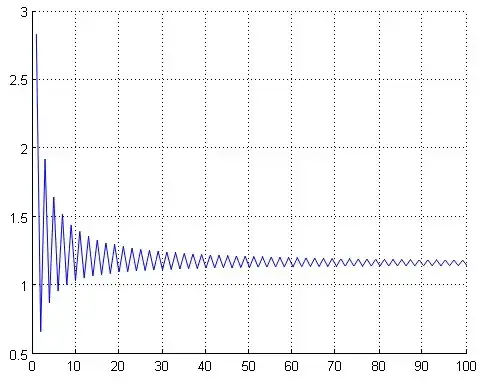I try to separate the following double sum
$$S=\sum_{i,j \in[-n,n], (i,j)\ne (0,0)} f_{ij}$$
where
$$f_{ij}=\frac{(-1)^{j+k}}{\sqrt{j^2+k^2}}$$
$$S=\sum _{k=1}^n \sum _{j=1}^n (f(-k,-j)+f(-k,j)+f(k,-j)+f(k,j))$$
but I do not know why it does not work for several value of integers.
Could you help to get a formula for n dimensional sum
Thanks
